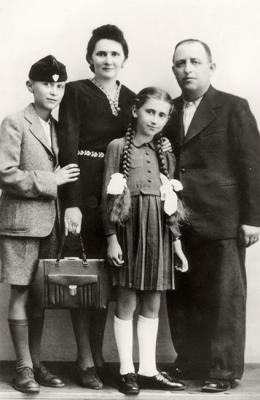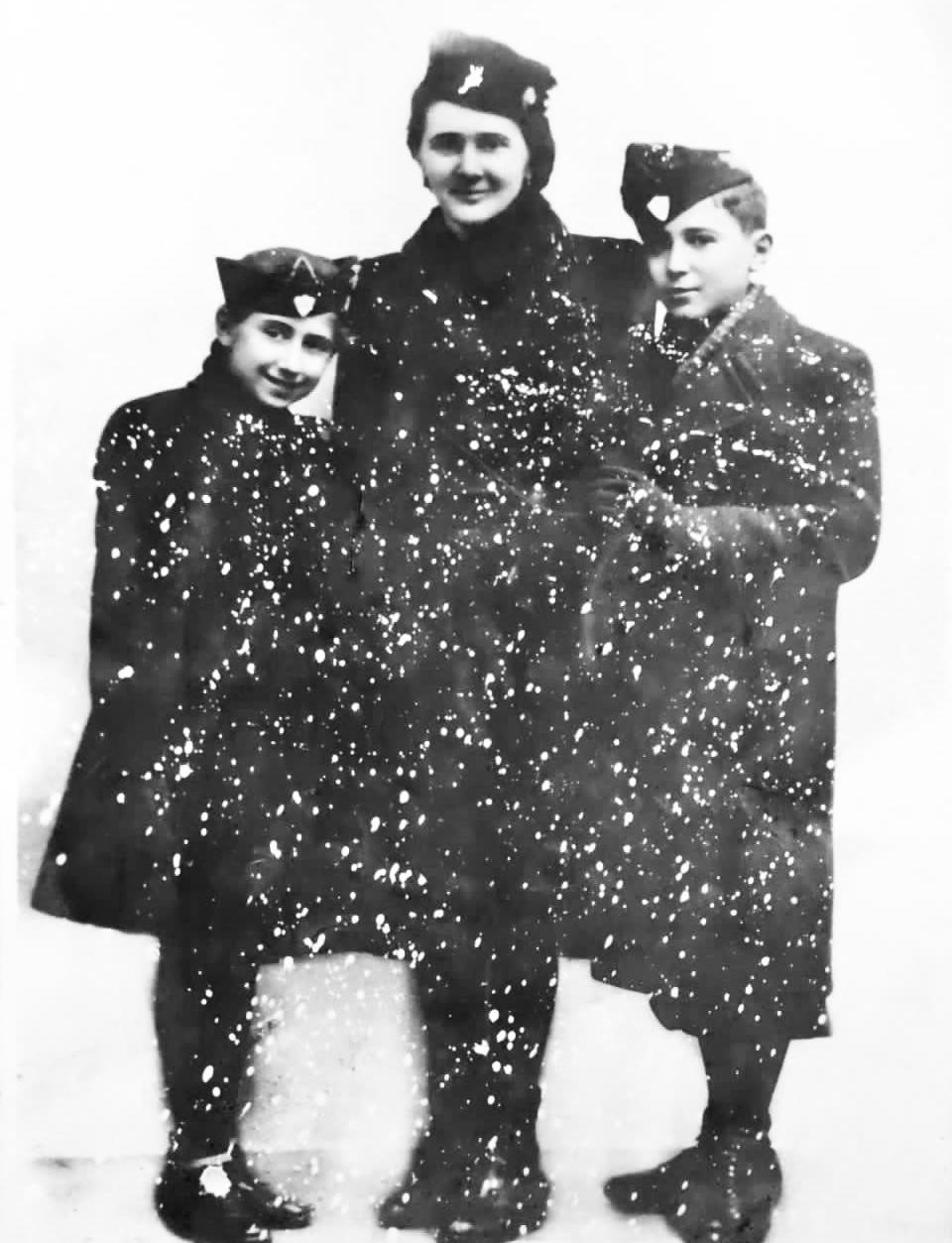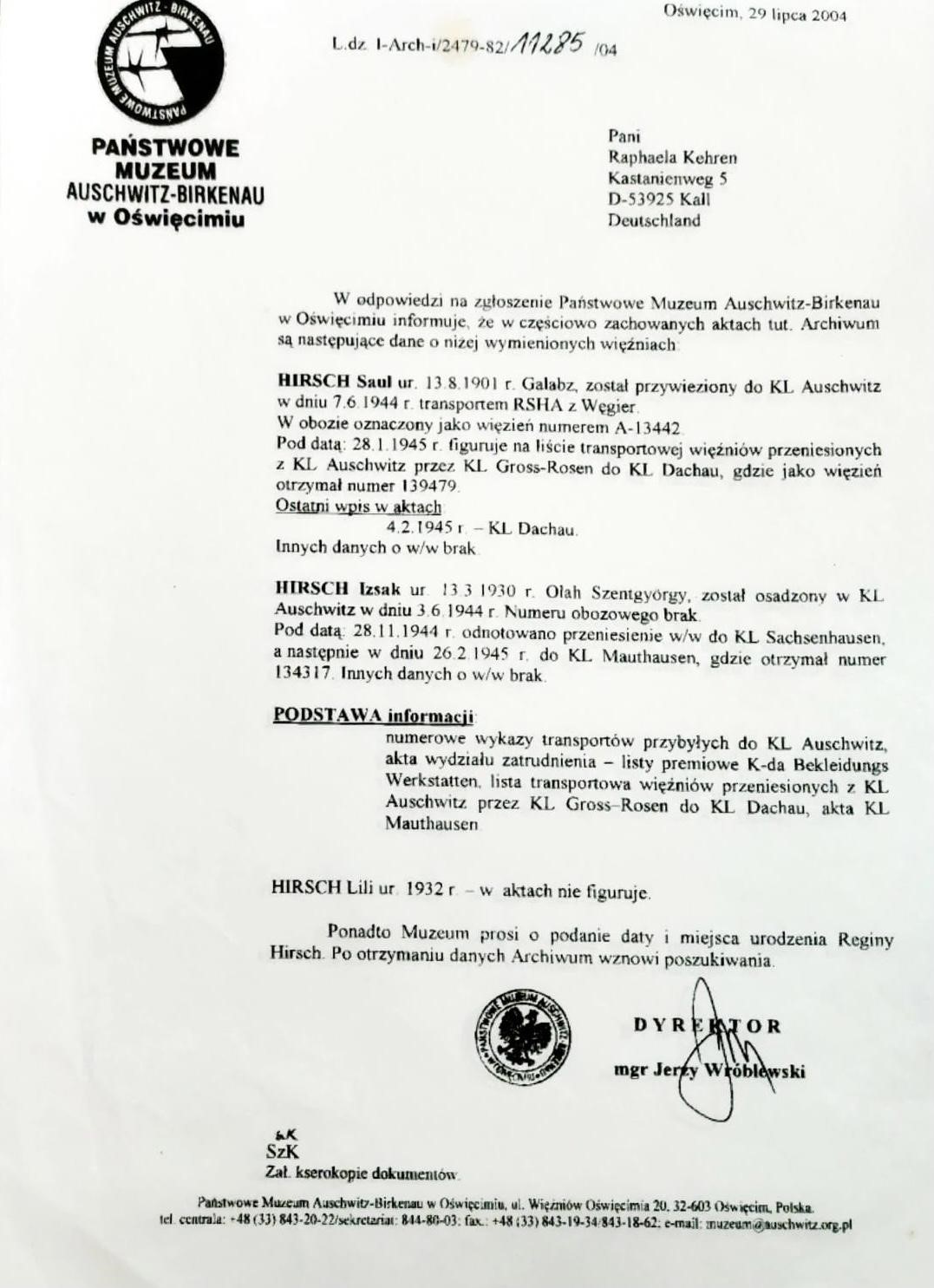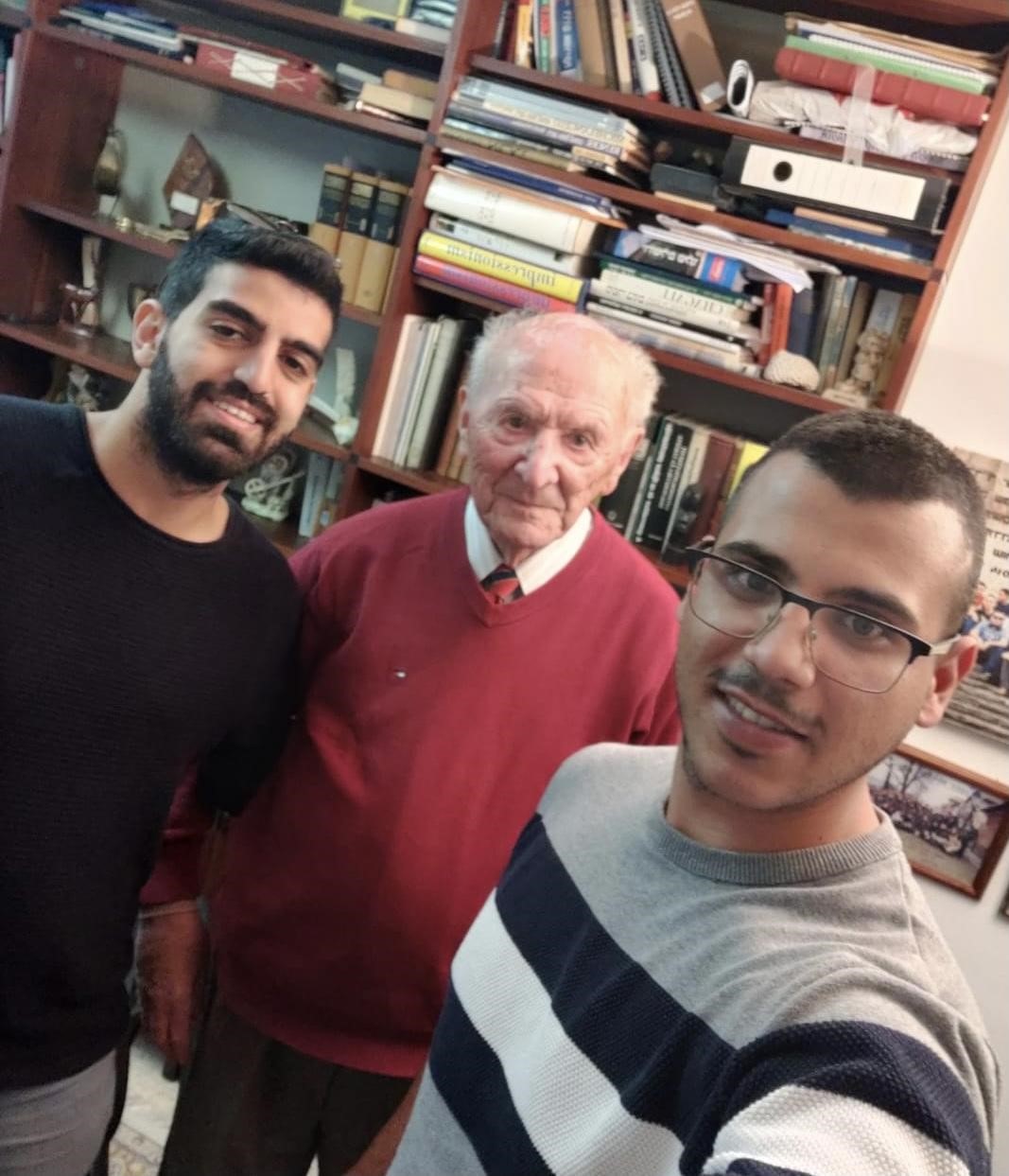Yitzhak (Icho) Hirsch was born in March 1930 to a religious family in the city of Targu Mures, in the Transylvania region that now belongs to Romania. When Yitzhak was three years old, his grandfather insisted on placing him in the “cheder" (a religious learning framework for very small boys).
When Yitzhak turned seven, he started attending primary school. There, most of his friends were Romanians. He remembers, "We would finish school and go play football together. We loved to go out, walk in nature. We just enjoyed being together". Often, after school, Yitzhak would work in his father's shoemaking shop, and there he met his best friend, Binti, his father's apprentice. "We would spend many hours shoemaking together," Yitzhak says.
In 1940, the Hungarians (in the service of the Nazis) entered Transylvania and Yitzhak's father was forcibly drafted into the Hungarian army for six months. One evening, Yitzhak heard a conversation between his father and mother. They were speaking Yiddish, thinking that Yitzhak did not understand the language, but he did. His father told his mother that on one of his trips to Ukraine, someone had told him that in a nearby village the locals had burned the synagogue with the Jews trapped inside. "I was shocked", says Yitzhak. "I did not believe such a thing could happen, or that people could behave that way."
After a short time, the family was deported to the Tirgo ghetto. "We were there for two months, working in the yard and on the farm, and we always had the hope that the situation was temporary and that we would soon return home. But then, the guards announced that we were moving to Germany to work in agriculture. What we did not know but would later become clear, was that we were actually being transferred to the Auschwitz concentration and extermination camp."
"When we got to Auschwitz, the selection started, during which I was separated from my mother Rebecca and my sister Lilly. That was the hardest moment of my life. Inside, I knew I would never see them again. That was an unbearable thought."
Yitzhak and his father, Shaul, were transferred to Block 21 where there were mostly gypsies. About a week later, Shaul was transferred to Auschwitz 1, and from that moment on Yitzhak was left alone.
Shortly after arriving at Auschwitz, many people from Block 21 (Yitzhak’s block), became infected with scarlet fever. The prisoners infected with the disease were sent to extermination; the other prisoners remained in quarantine. Here, luck was on Yitzhak's side. Shortly before the outbreak of the epidemic, Yitzhak was removed from the block by the person in charge. Yitzhak polished the shoes of that person every morning, and that turned out to be the thing that saved him from the danger of contracting the disease, and actually saved him from death.
About two months after he arrived in Auschwitz, all of the prisoners, including Yitzhak, were taken on death marches. On those terrible marches, Yitzhak went through at least four different camps. At the end of the war, during the Nazi withdrawal, the "last march" took place. On that march, he and some 17,000 other prisoners were sent from Sachsenhausen to Mauthausen. The vast majority of the prisoners did not survive.
But, miraculously, Yitzhak survived. He was liberated by American forces and transferred to a refugee camp where, while he was recovering from typhus, he learned that his father had survived and was in the Feldafing DP camp in Germany.
Despite his poor physical condition, Yitzhak quickly left the refugee camp and boarded a train that took him to his father. In September 1945, Shaul and Yitzhak returned to their home in Targu Mures.
Today, Yitzhak lives in Kiryat Haim, enjoying the family he established and taking care to "pass on the torch" and tradition to future generations.



